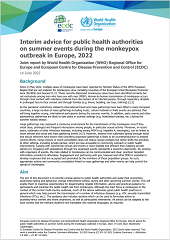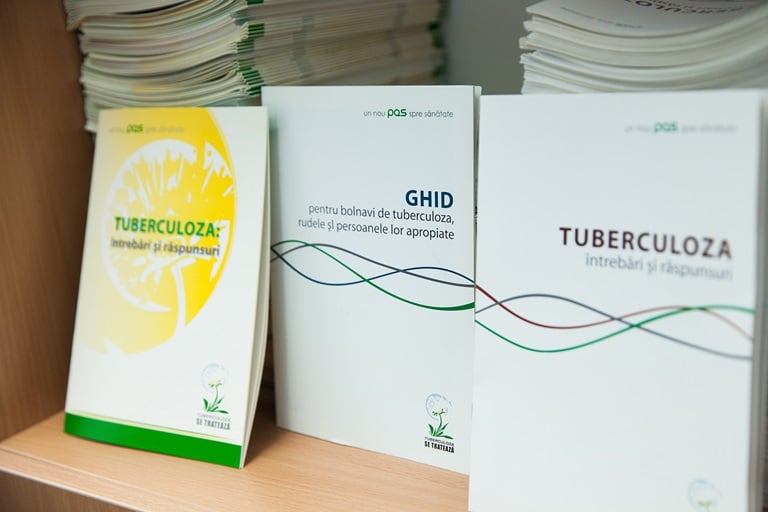Interim advice for public health authorities on summer events during the monkeypox outbreak in Europe, 2022
Joint report by World Health Organization (WHO) Regional Office for Europe and European Centre for Disease Prevention and Control (ECDC)

Publications
Legionella infections represent a significant health burden in the pan-European region; in many countries it is considered among the most important waterborne...
Water, sanitation and hygiene (WASH) services, including waste management and environmental cleaning, are fundamental to quality care, infection prevention...
Unhealthy bodyweight in children affects physical and mental health, school performance and quality of life, while also raising the risk of obesity and...
The Workshop on wastewater and environmental surveillance (WES) for public health in central Asia, held on 5 June 2025 in Astana, convened national and...
Joint report by World Health Organization (WHO) Regional Office for Europe and European Centre for Disease Prevention and Control (ECDC)

WHO Regional publications - other Regions
